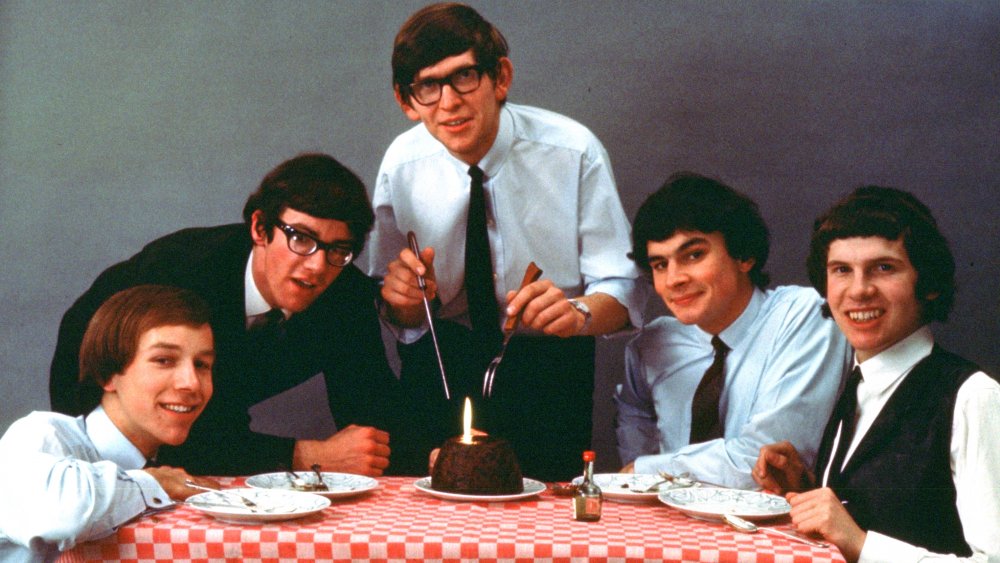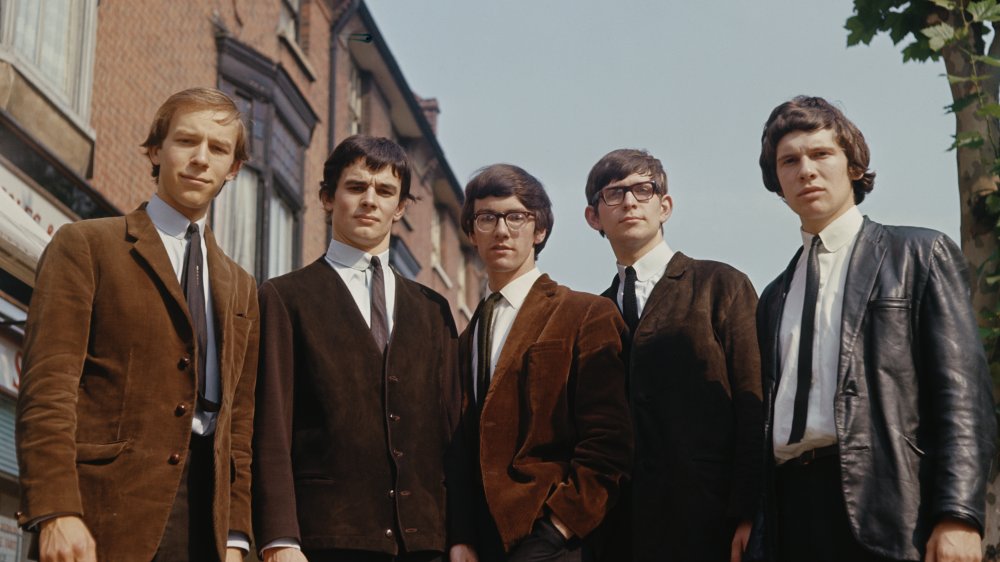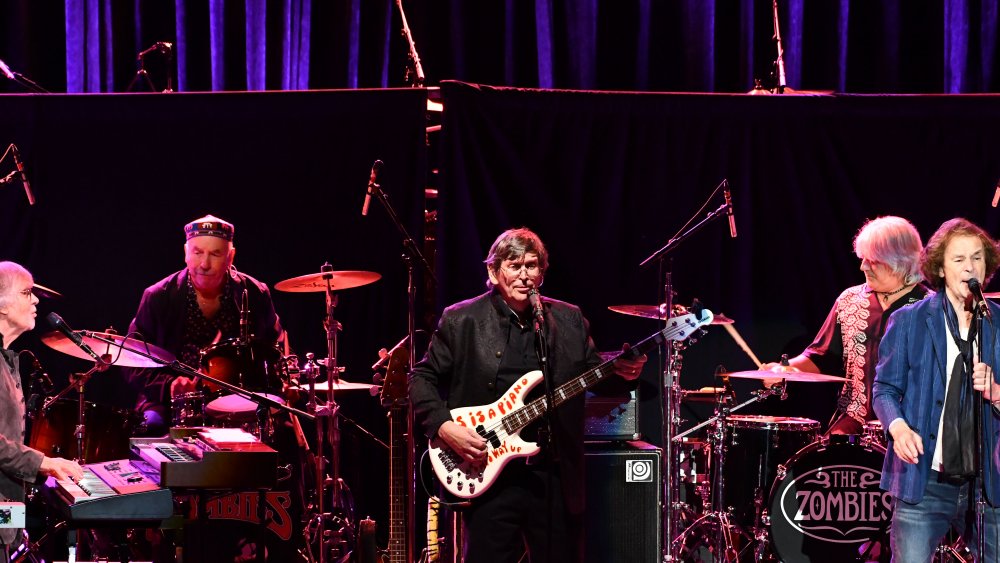Why The Zombies Stopped Making Music
When bands break up, it's usually because the members got into a fight or there were creative differences between the group and their management. But there are those few instances when a band breaks up simply because they thought they weren't successful.
English rock band The Zombies believed just that when they broke up in 1967. The group, who recorded the songs "She's Not There," "Tell Her No," and the very '60s "Time of the Season" — believed they weren't making hits, so they decided to go their separate ways.
Songwriter and keyboardist Rod Argent told Express there was absolutely no animosity between the members. The choice to part ways simply boiled down to economics. Argent said the band had no knowledge of how their records were doing outside of the UK, and within the UK, they saw their audience dwindling. Musicians at the time (and until recently) relied on touring and live performances to make the bulk of their money. And frankly, The Zombies fan base in the UK wasn't much. The band told The Guardian they really only had one hit in the country with "She's Not There." Argent said the band's appearance fees had dropped considerably, so for many band members, it was better to just split up and find success elsewhere, maybe with a different band so that they can make more money.
One last hurrah
Argent and co-writer Chris White wanted to see if they could put out one more album to try to rekindle their fame before breaking up. White told The Guardian that none of the band first thought music would be their full-time careers, so they might as well give it one last shot. While the band occasionally performed abroad, the bulk of their gigs were in the UK. Understandably, they hoped to be successful in their home country again.
In 1967, The Zombies recorded their last full album, titled Odessey and Oracle. (The word odyssey was accidentally misspelled by the album's cover designer). The album's sound differed from their previous releases. The band experimented a little bit to make some of the songs sound more psychedelic, though White insists the band never dabbled in narcotics, unlike other groups at the time (ahem The Beatles). The experimentation was borne out of necessity — they couldn't afford to pay session musicians.
Even with the change in sound, songs from the album did not sell well in the UK. The first single, "Care of Cell 44," failed to chart. Neither did a second single. So The Zombies, feeling like their music careers were going nowhere, played one final gig together after the album's release and finally broke up. Argent and White started to prepare songs for a new band, and the others pretty much decided to live normal lives.
That is, until the international numbers came in.
They got some unexpected news
Odessey and Oracle, through the help of fellow musician Al Kooper, was released in the United States in 1968. It wasn't a hit right away, but by 1969, their song "Time of the Season" was being played on the radio all over the country. Suddenly, The Zombies were in demand once again.
Argent told Express that by this time, band members had moved on to other projects, so even the offer of $1 million to reunite didn't entice them. But this resurgence in popularity at least allowed other band members to reenter the music industry again. After a brief stint as an insurance agent, lead singer Colin Blunstone released an album that became a cult hit, reported The Guardian.
While The Zombies didn't want to reunite and do the whole shebang all over again, they did play a couple of one-off performances once "Time of the Season" became a hit song in the '60s and '70s. A version of the band, with only three of the original members, recorded an album in 1990, according to AllMusic. The band's label released remastered versions of their songs in the 1990s as well. In 2017, the remaining members of the band — guitarist Paul Atkinson died in 2004 — reunited for a North American tour. And in 2019, The Zombies, the band that broke up because they felt they weren't successful, was inducted into the Rock and Roll Hall of Fame.


